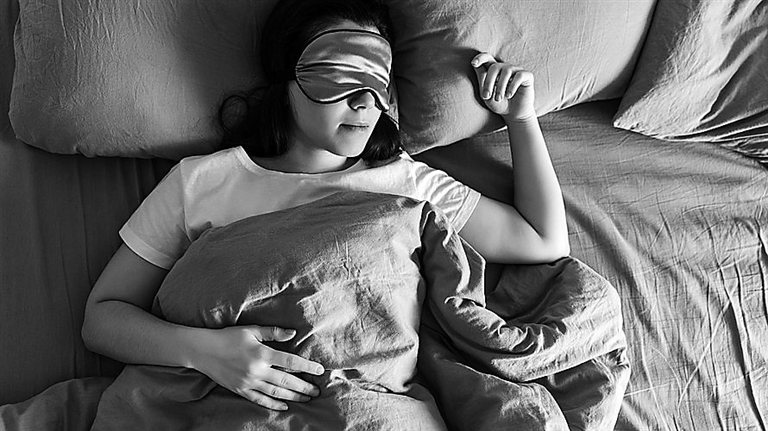
NOT being able to fall or stay asleep is frustrating, especially if it happens on a regular basis. To get much-needed rest, many people turn to the sleep supplement melatonin, which is a synthetic version of the natural melatonin your body makes to help induce sleepiness. But is melatonin safe to take every day? Melatonin, aka the “hormone of darkness,” is made by your body in the pineal gland just above the center of the brain. This hormone helps regulate the sleep-wake cycle of your internal clock. “Melatonin gets released when the sun goes down,” said Beth Malow, a professor in the department of neurology and pediatrics and director of the sleep disorders division at Vanderbilt University Medical Center. “It makes us drowsy — about two hours after melatonin starts getting released, we are ready to go to sleep.” In the morning when the sun comes up again (or you’re exposed to bright light), melatonin levels fall, cueing your internal clock that it’s time to wake. The brain normally makes only a very small amount of melatonin — around 0.2 milligrams. For some people, that might not be enough to help them get the rest they need. So melatonin supplements, which typically contain higher doses than the amount your body naturally releases, can be useful to treat sleep disorders and insomnia. “Supplemental melatonin allows us to get drowsy and ready for sleep,” said Malow. “In addition, melatonin can be calming and help us ‘turn our brains off.’” Research showed that melatonin can reduce the time it takes for people with delayed sleep phase wake disorder (DSP) to fall asleep. Another study, published in Journal of Physiology-Paris, found that melatonin might also help reset the body’s sleep-wake cycle. Other small studies suggest that supplementary melatonin can ease anxiety and jet lag. Melatonin is a prescription medication in Europe, but in China and the United States it qualifies as a dietary supplement. Dr. Malow believes melatonin is generally safe to take every night, but large studies are needed to determine whether it’s effective and safe for all forms of insomnia and particularly for long-term use. Other doctors recommend sticking to lower doses (1 to 3 milligrams per nightly dose) of melatonin to prevent unwanted side effects, which typically include increased dreaming, nightmares, or morning sleepiness. If you are bothered by these side effects, you should stop taking melatonin and speak to your doctor about alternatives. Melatonin isn’t suitable for everyone. You shouldn’t take melatonin at all if you’re pregnant or breastfeeding or have an autoimmune disorder, a seizure disorder, or depression. If you have diabetes or high blood pressure, talk to your doctor before taking it. And if you are on any medications, check with your physician to make sure melatonin won’t make them less effective or cause more side effects. If melatonin isn’t helping with sleep after a week or two of nightly use, Malow recommends checking in with your doctor about other options. There are many ways to create optimal conditions for a good night’s sleep, whether or not you take melatonin. Keep the lights low before bed to cue your body to relax, and if you watch television in the evening, make sure you’re at least six feet away from the screen, as blue light emitted from the TV can keep you from nodding off. Everyone deserves the snooze time their body requires, and it’s crucial to make necessary changes to your environment and schedule so you can easily drift off to dreamland. (SD-Agencies) | 
